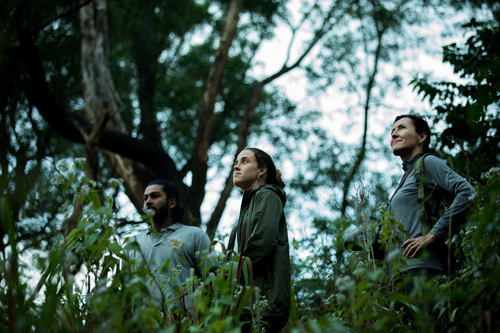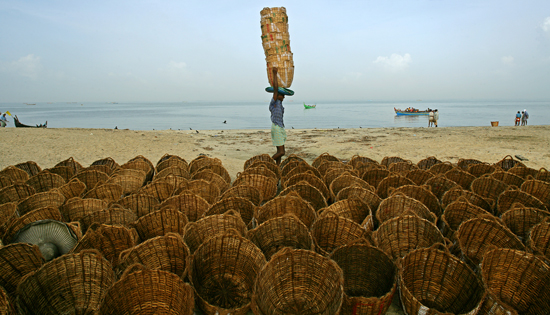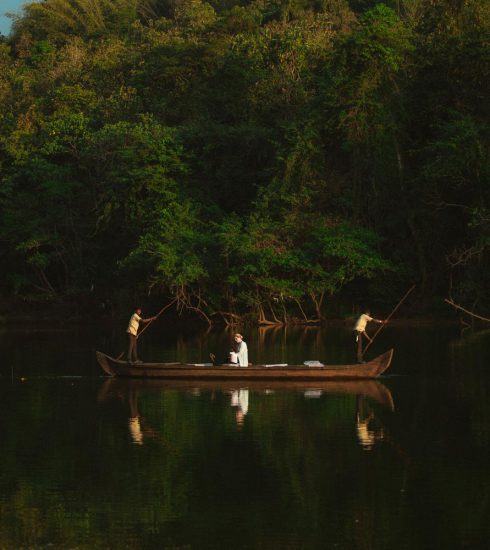Friends of the land
CGH Earth undertook the green journey nearly two decades back before it become fashionable. But the effort has always been well-appreciated and rewarded.
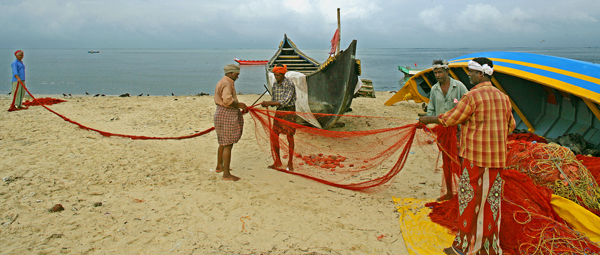
On a holiday at CGH Earth’s Marari Beach, you will find that you do not have the beach to yourself. In fact, that is one of the reasons why the resort won the prestigious and highly-competitive Skal International Eco-tourism award last year. Set up to honour initiatives that not only encourage the conservation of the environment, but also examine community participation, the award reflected Marari Beach’s innovations in conserving nature and the local environment, and working with the community. The resort, with its comfortable 62 cottages styled like a fishing village and spread over 25 acres of coconut grove, is private without being cut off. You could amble down to the local fishing village or exchange friendly ‘hellos’ with the local people on an evening walk down the village roads.
Marari Beach is seen as a good example of a responsible tourism project in a fishing village thanks to its efforts in actively involving the community and utilising the strength of the destination.
says Erin Louis, the General Manager of the resort. This is true of all CGH Earth destinations. And the only uniformity in the resorts under the hotel group is the minimal interference with nature or the local environment, without compromising on luxury. This style of functioning might have been a difficult decision to make two decades back when minimalism was not fashionable in the hospitality industry. But, as it turns out, with the growing concern over the environment and sustainability, it was a timely and well-appreciated one Like a poor man with a big heart, Bangaram, in the Lakshadweep Islands was a remote and bare destination, but one of great beauty, with some of the most spectacular corals in the world. The challenge was not how to turn it around so that it would be plush, but to continue to make it seem untouched. So, the ‘facilities’ are comfortable without causing disturbance, and the guests can’t seem to get enough of the less than 2 sq km island. One repeat guest celebrated her 500th dive in Bangaram last year.
Our first impression of Bangaram was of a nowadays almost unique experience and one that needs protecting. It is very rare to find simple, relatively unspoiled environments in which one can escape from telephones, newspapers, radio and television,
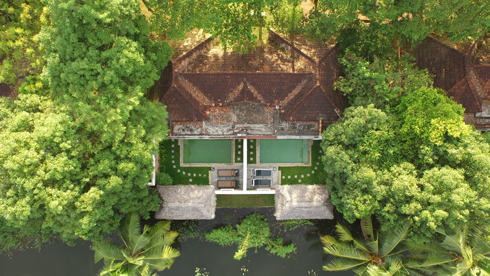
says Richard Peirce, who comes with wife Jacqui to Bangaram every year. “The CGH Earth philosophy of eco-friendliness and local community participation is of vital importance. If mankind doesn’t very soon stop in his headlong suicidal rush to ruin the planet, then I believe we too will eventually become extinct. Philosophies like those espoused by CGH are part of the jigsaw that we need to build if we are to have any chance at saving the planet.” In fact, Bangaram served as the guide for the resorts that followed in the CGH Earth group, and though each of them offers an exclusive experience, the green and home-grown aspects are central. While Marari Beach was honoured by Skal, Spice Village set amidst spice plantations in the Periyar Wildlife Reserve region, won Wild Asia’s annual Responsible Tourism Awards in the ‘Boutique Hotel’ category. The award citation suggests that “by demonstrating how easy and beneficial responsible tourism is to implement, we hope other operators will follow suit”.
Coconut Lagoon has led by example in eco issues such as waste management. Vembanad Lake, on which the resort is set, has a fragile eco-system. Tourism is a big industry in this region, and perhaps, Coconut Lagoon and the CGH Earth-managed houseboats are the few rare ones that do not pump effluents into the lake,
says K.K. Shajimon, president of the Ayemenem Grama Panchayat, the village administrative body, which facilitated the resort – the first time a panchayat has done so in Kerala. “They have also contributed computers and books to our schools, and encourage local women’s self-help groups, which make paper bags for the resorts.” Over the years, CGH Earth has upped the ante; from putting in place high-tech, state-of-the-art waste recycling and management systems, rainwater harvesting and vermi-composting to not using plastic bags, setting up patches of organic vegetables and ayurvedic plants and also butterfly gardens.
The quality of the naturalists at CGH Earth; the skills that they bring are very impressive,
says Hitesh Mehta, author and delegate of international tourism body, TIES. “In hospitality and as eco-resorts, the CGH Earth group is exemplary and in the top bracket. Now, the inspiration for the future has to come from within. It is not a bad idea, because so far it has worked with positive results.”
